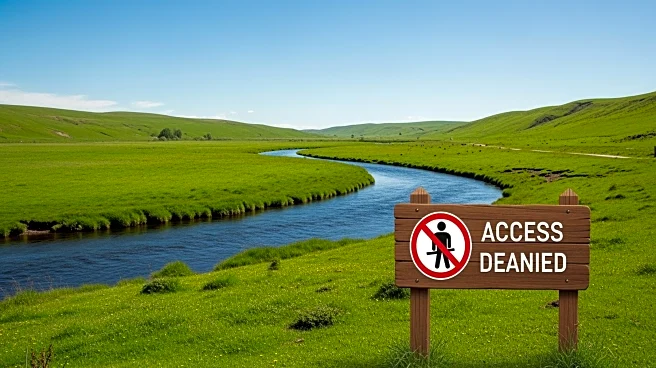What's Happening?
The Right to Roam campaign group has criticized the British Government's pledge to create walks along nine rivers in England, arguing that it is insufficient. The group advocates for public access to all rivers, highlighting the logistical challenges
of negotiating access with numerous landowners. They plan to stage protests along various rivers to emphasize the issue of restricted public access. The campaigners argue that rivers should be accessible to everyone for activities like swimming and walking, and propose new legislation to grant public access rights to all rivers and riverbanks.
Why It's Important?
The issue of river access in England has broader implications for public rights and environmental stewardship. By limiting access to only nine rivers, the government may be missing an opportunity to enhance public engagement with natural spaces, which can foster environmental awareness and conservation efforts. The campaign's push for broader access rights could lead to increased public involvement in river conservation and potentially influence policy changes. This debate also touches on the balance between private land ownership and public access rights, a topic with significant social and legal ramifications.
What's Next?
The Right to Roam campaign plans to organize protests along several rivers in November to draw attention to the issue. These actions may increase public pressure on the government to reconsider its approach to river access. If successful, the campaign could lead to legislative changes that expand public access rights, potentially setting a precedent for similar access rights in other natural areas. The government's response to these protests and the campaign's demands will be crucial in determining the future of river access policies in England.
Beyond the Headlines
The debate over river access in England highlights broader ethical and cultural issues related to land ownership and public rights. It raises questions about the historical context of land ownership and the modern need for inclusive access to natural resources. The campaign's efforts could spark discussions on the ethical responsibilities of landowners and the cultural importance of shared natural spaces. Long-term, this could influence societal attitudes towards land use and conservation.
















